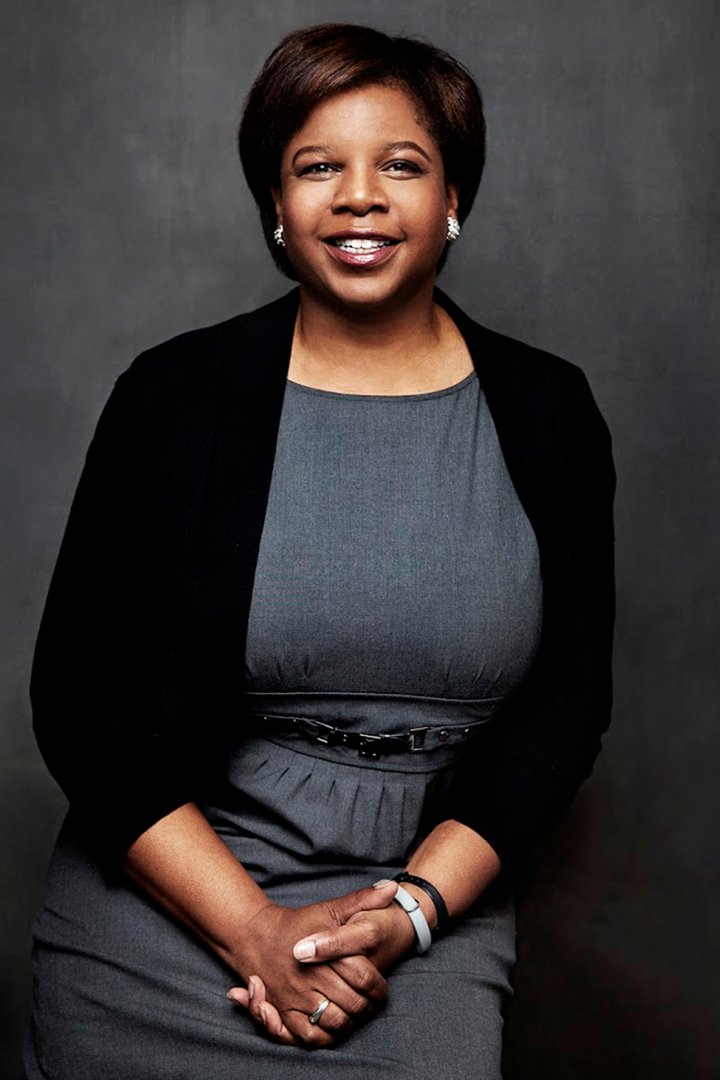Angela Dorn was a successful New York attorney with a Harvard Law degree when she decided to leave the field. In 2006 she became a cofounder of Single Stop, a nonprofit that connects people with the resources they need to get out of poverty. Single Stop has since helped more than a million U.S. households, with $3 billion in support. Dorn spoke with Real Simple about hard work and changing dreams midstream.
ANGELA DORN
- Chief legal officer of Single Stop, a national nonprofit that connects low-income people with financial help, counseling, training, and legal support to help break the cycle of poverty.
- Based in New York City
What was your childhood like?
I grew up in a suburb of Chicago. My family was one of the few families of color in the community. I guess
I’d say my parents were suburban activists. They created a Black Parents Association
to promote the interests of kids of color at the local school. My child- hood was great, but when my parents stood up for what they believed was right, there was pushback. My father received harassing phone calls. A cross was burned on our lawn. We got through it. I think that led to my interest in civil rights.
I wanted to be a lawyer from a very early age.
But working in
law was not what
you thought.
I remember my law- school essay was about wanting to help the working poor. I didn’t do a whole lot of that when I was practicing law. Part of what can be challenging about [law] is that your direction is determined by the cases that come to you, not by what you decide you want to do. I wanted my career to be more directed by what mattered to me.
Do any examples come to mind? There was a large class- action case where I was defending the company. I was probably in my mid-30s. When I deposed the people who had brought the suit, I got them to say things that weren’t necessarily in their best interest. Some of them ended up in tears from the questioning. That convinced me that, while I might be good at this, it’s not how I want to spend my time. I was learning a lot about how to think as a lawyer, but I had reached a point where I thought, This is not who I am. I don’t want to do this.
Was that hard to come to terms with?
What was hard was telling my family. My parents are people I greatly admire, given their strength and achievements. My mother was a lawyer. She was the first African-American woman to practice in Florida. She would say, “If I had your opportunities, there’s no way I wouldn’t take full advantage of them.” I had to tell her that I’d had these opportunities and realized they weren’t for me.
What happened next? I took a job at an asset-management company. I also got to work with the company’s family foundation, which gave me access to more of the philanthropic world. Single Stop was an idea that came from a dear friend of mine. She was working
on taking a program of the Robin Hood Foundation national and asked if I wanted to help her establish this organization.
It was somewhat personal for you.
My older brother had died about five or six years before. He was the person in our family who wanted to be an artist and didn’t take a traditional path. He had always lived with very little. I felt like we had failed him by not encouraging him to take advantage of every financial opportunity the government had to offer.
How does Single Stop address these challenges?
The mission is to help people get access to benefits and resources they’re entitled to but aren’t aware of—food- stamp assistance, health-care assistance, earned-income tax credit. Right now the system is fractured. You have to run around the world in order to understand everything that might be available to you.
You’ve said you’re a reformed workaholic. What changed?
I got older and didn’t have as much energy. But I also saw life passing me by. My deceased brother’s daughters spent a summer with me four years ago, when they were in high school, and then again last year. When they were here, I knew I needed to be home by a certain hour because I wanted to expose them to New York. I could see that unless you consciously decide to spend time with people, life goes on.
Do you have a regular exercise regimen?
I should. Right now I’m part of a coaching group, thinking about what I’m going to do next in my life. One of the things I’m supposed to do is pick up an exercise routine.
What is a lesson you’ve learned? People evolve. The workplace has to be sensitive to that. I know I’ve evolved.
In what ways? I’m probably more compassionate now. When I was younger,
I thought I knew it all. I was educating myself on certain matters, like race, and I was really into it. But I thought I was special and different. Well, everybody is special and different. So I wasn’t wrong about that, but we’re all in this together.


